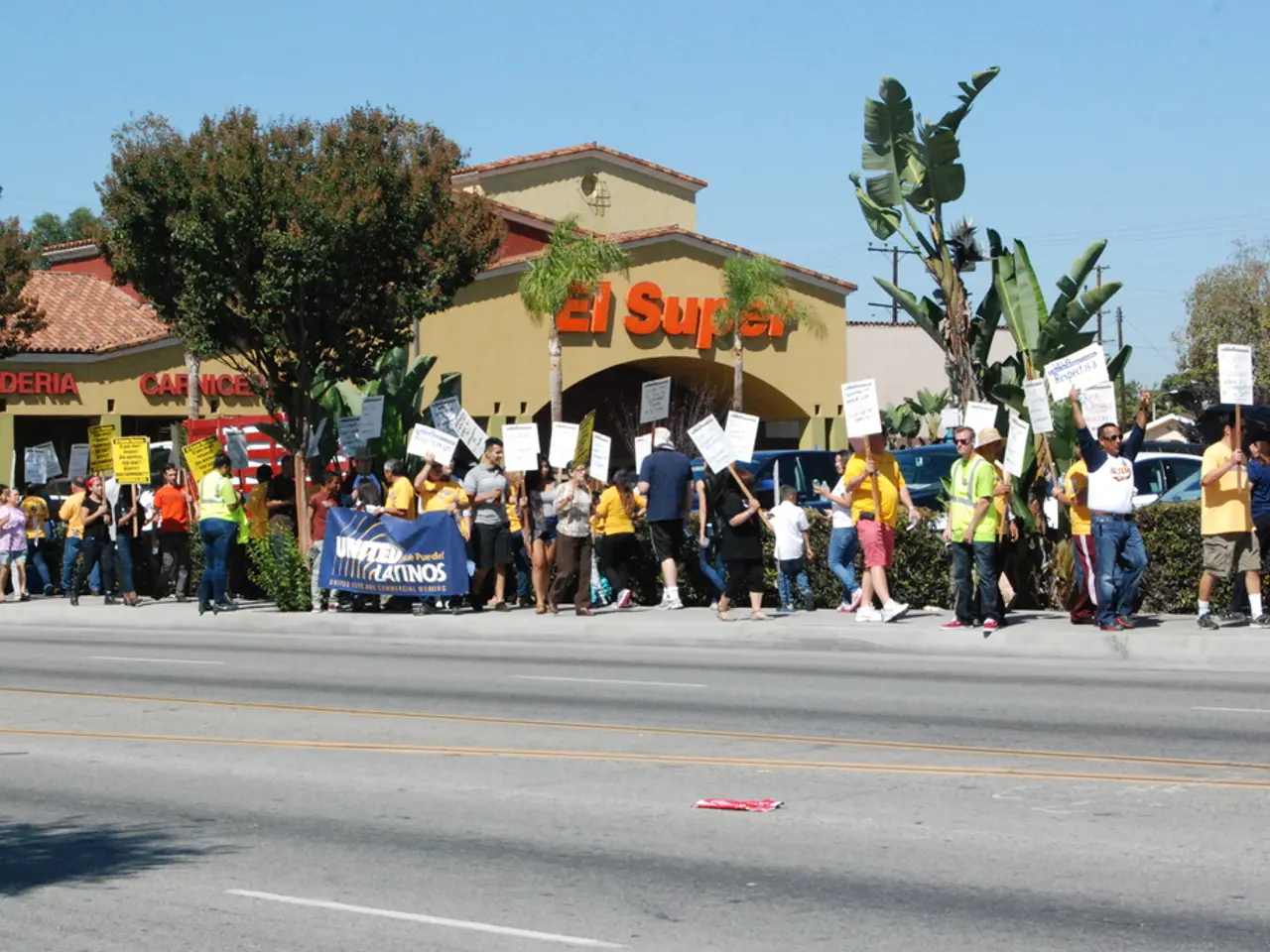SPD is embroiled in a struggle to avoid demotion
The local elections in North Rhine-Westphalia (NRW) on September 14 will serve as a significant political barometer, following the federal election in February.
NRW, the most populous federal state in Germany, is often seen as a blueprint of the republic due to its diverse demographics and issues. The state has been in the spotlight recently, with the local elections expected to reveal the political mood of the region.
In the 2022 NRW state election, the CDU emerged as the strongest party with 35.7% of second votes, while the SPD finished second with only 26.7%. This result reinforced the CDU's dominance in NRW and highlighted a comparatively poor showing for the SPD, who fared better at the federal level in 2021.
The SPD's underperformance in NRW has implications for coalition politics at the federal level, including the black-red alliance in Berlin. The expansion of the NRW Landtag due to overhang and compensation mandates, largely driven by CDU strongholds, reflects the party's solid local base contrasted with the SPD's weaker performance.
Bas, the SPD leader from Duisburg, won her own constituency of Duisburg I in February. She, along with other pragmatic candidates like Frank Dudda, Sören Link, Andrea Henze, Ralf Paul Bittner, and Nicole Reschke, are actively campaigning to connect with voters and strengthen the SPD's position in NRW.
Barbara Bas has expressed a desire to leave the pension untouched and make civil servants pay in, a stance that is well-received in NRW despite criticism from experts. However, the SPD could land at 22 percent statewide, which is significantly better than their recent performance at the federal level, but still disappointing for NRW.
The AfD, on the other hand, is now hot on the heels of the SPD in the Ruhr area, a region where the SPD managed to hold on in the federal election in February. Political scientist Norbert Kersting from the University of Münster considers it unlikely that an AfD politician could move into a larger town hall in NRW due to the existing firewall of parties that rigorously distance themselves from the AfD.
According to a Forsa poll from early July, the CDU, SPD, and Greens could suffer losses, while the AfD and Left could gain in the local elections in NRW. Dirk Wiese, manager of the Bundestag fraction, does not believe that the performance of the Merz coalition in Berlin will have a great influence on the local elections in NRW.
Lars Klingbeil, another SPD co-party leader, has also been campaigning for the NRW local elections. Bas, considered the prototypical Social Democrat, with a working-class background and interests in football, crime novels, Sting and The Police, Currywurst, fries, and König Pilsener, is seen as a beacon of hope for the battered SPD in Gelsenkirchen. The campaign manager for the Gelsenkirchen mayoral candidate Andrea Henze believes that Bas will stand up for the region.
In conclusion, the NRW local elections will provide valuable insights into the political landscape of the region and its impact on coalition politics at the federal level. The CDU's stronghold in NRW and the SPD's challenges in maintaining equivalent support will be closely watched.
- The local elections in North Rhine-Westphalia (NRW) are a significant part of policy-and-legislation, as they will serve as a political barometer for the region and could have implications for coalition politics at the federal level.
- The NRW local elections fall under the category of general-news, as they will reveal the political mood of the region, following the federal election in February, and provide valuable insights into the political landscape of the state.








